[Bianculli here: Contributing writer Ed Martin is all in a lather over how the broadcast networks are treating -- or mistreating -- one of television's oldest genres: the soap opera. And I agree with him completely...]
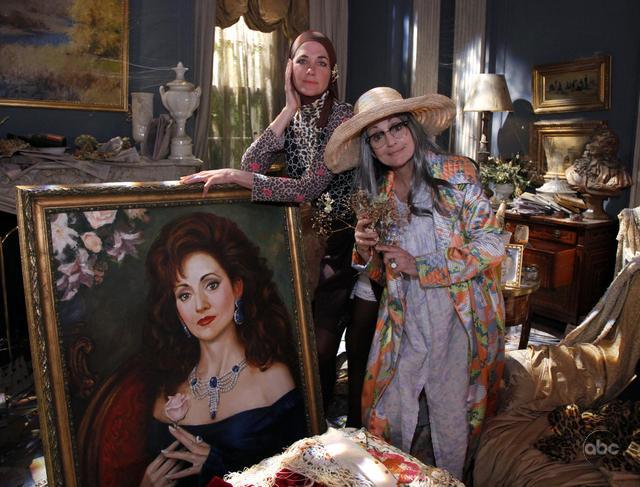 What's left for broadcast TV to call its own? Soaps
What's left for broadcast TV to call its own? Soaps
By Ed Martin
The '00s may be the new Golden Age of primetime drama, but for fans of daytime serials they have truly been the Dark Ages, right up until the very end. With only 14 days left until the turn of the decade, and just three months after the last episode of Guiding Light, a historic franchise that spanned 15 years on radio and 57 on television, CBS and Procter & Gamble Productions recently confirmed what had been a chilling rumor circulating for months on the internet: The cancellation of As the World Turns, currently the longest-running scripted program on television and, like Light, one of the medium's few remaining national treasures. ATWT will have its final telecast in September 2010 during its 54th season.
I mean, damn -- Guiding Light was the soap that so many of our grandmothers listened to on the radio, before television came along, while As the World Turns was the one everyone's mother watched while doing their ironing during the '50s and early '60s, when television came into its own. Don't they deserve better than this?
How ironic that ATWT should die this way at this time. This was the first soap opera to enjoy an alternate life on YouTube and elsewhere, in the form of viewer-made short videos lifted from episodes and cobbled together by character or storyline, making it easy for people to watch 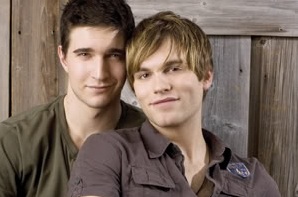 only the stories and characters they were interested in. (The groundbreaking love story of gay teens Luke and Noah has been an internet sensation all on its own.) What a shame that nobody on the network or production level could figure out a way to make this very dynamic viewer interaction work on the show's behalf.
only the stories and characters they were interested in. (The groundbreaking love story of gay teens Luke and Noah has been an internet sensation all on its own.) What a shame that nobody on the network or production level could figure out a way to make this very dynamic viewer interaction work on the show's behalf.
This would seem to be the perfect time for me to state the obvious, as I have so many times before: Daily daytime drama is virtually the only form of ongoing programming that remains unique to broadcast television. With the exception of big-ticket sports events, and a couple of awards shows, there is simply nothing left that broadcast can call its own. There are no daily soap operas on cable networks, and while there are a host of new serials on the web (many starring unemployed actors from daytime dramas), these mini-soaps are a long way from the television variety.
What's killing the genre, even though it remains popular with millions of viewers of all ages and still supports franchises that are instantly recognizable to tens of millions more? How about the fact that soap operas have been under attack from the outside and the inside for so long that long-term survival is no longer an option? External enemies include the handful of network executives in whose hands the fate of daytime drama has been placed -- men and women who understand little about soap operas and care about them even less -- as well as clumsy audience measurement techniques that don't come close to reflecting the breadth and depth of the popularity these programs enjoy, nor the loyalty their viewers tend to feel toward the networks that broadcast them and the advertisers that support them. While it is true that changing American lifestyles have had a negative impact on daytime drama viewing patterns, don't believe all that crap about cable and the internet killing them off. Twilight-like madness still follows when popular soap stars gather together for promotional or industry events.
The internal problem is a creative one that to some degree has been so consistently enflamed by some of those external enemies referenced above that it has become positively cancerous, literally eroding the soaps from within. For the last 10 years, and to some degree much longer, the soap operas on every network have remained in the clutches of a small group of head writers and executive producers who ran out of fresh ideas and interesting initiatives a long time ago. Successful innovation seems to elude the people who are paid to innovate. As a result, there hasn't been a soap opera on broadcast television that has actually been fun to watch on an ongoing basis 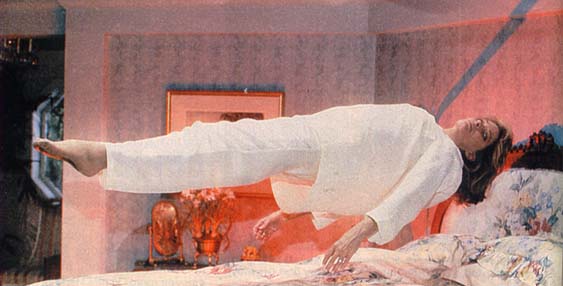 since NBC's Days of Our Lives in the early and mid-'90s, when the late lunatic genius James Reilly took control of the show and put its characters through wild trials (including demonic possession and trips to alternate universes) that made Days more exciting than all other soaps combined. Those ever-essential young viewers were especially impressed.
since NBC's Days of Our Lives in the early and mid-'90s, when the late lunatic genius James Reilly took control of the show and put its characters through wild trials (including demonic possession and trips to alternate universes) that made Days more exciting than all other soaps combined. Those ever-essential young viewers were especially impressed.
For most of the last 10 years, though, the experience of watching just about any daytime drama on a consistent basis has been one long depressing chore, only occasionally punctuated by brief periods of engaging storytelling. These sporadic swells have been so surprising that they have felt like happy accidents. As the decade progressed, the soaps largely lost their ability to tap into the moment and reflect the fantasies, desires and expectations of their viewers. This happened once before, way back in the '70s, but a handful of skilled producers (mostly on ABC) identified that problem and fixed it.
It would be unfair not to point out that there have been a handful of strong and satisfying stories and performances on every soap opera during the difficult '00s. The producers and writers of 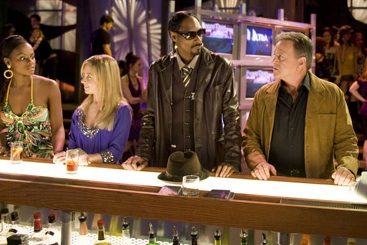 One Life to Live [ABC photos at top and at right], for example, have been especially fearless for many years now, consistently keeping their canvas populated with colorful and diverse and sometimes controversial characters, most of whom feel very contemporary -- even the veterans. Given the new audiences OLTL has reached out to in so many creative ways, I can't believe its ratings aren't stronger. Then again, as mentioned above, I don't put much stock in daytime audience measurement.
One Life to Live [ABC photos at top and at right], for example, have been especially fearless for many years now, consistently keeping their canvas populated with colorful and diverse and sometimes controversial characters, most of whom feel very contemporary -- even the veterans. Given the new audiences OLTL has reached out to in so many creative ways, I can't believe its ratings aren't stronger. Then again, as mentioned above, I don't put much stock in daytime audience measurement.
Days of Our Lives has recently experienced actual audience growth by bringing back popular characters from years past. CBS' The Bold and the Beautiful continues to be a powerhouse on the international market. ABC has very publicly given votes of confidence to All My Children (by relocating it from New York City to a dazzling high-definition studio in Los Angeles) and One Life to Live (by moving it from its outdated studio space on New York City's Upper West Side to the network's high-def downtown studio where AMC had been located). Still, I fear that none of this is enough to halt the genre's overall slide, let alone reverse it.
The resultant damage is terrible to see, and not only for viewers. With Guiding Light dead, As the World Turns soon to be snuffed, and All My Children relocating to the West Coast, this is truly a catastrophic time for the New York acting community. 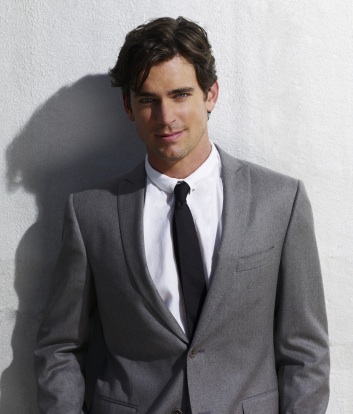 Countless movie and television stars began their careers acting in New York City-based soap operas. (Soon, OLTL will be the only one left.) For example, it was only a few years ago (eight, to be exact) that Matt Bomer first attracted a following as nice-guy turned psycho-killer Ben Reade on Guiding Light. Bomer is one of this year's most popular breakout stars thanks to his lead role on USA Network's sparkling new crime caper White Collar.
Countless movie and television stars began their careers acting in New York City-based soap operas. (Soon, OLTL will be the only one left.) For example, it was only a few years ago (eight, to be exact) that Matt Bomer first attracted a following as nice-guy turned psycho-killer Ben Reade on Guiding Light. Bomer is one of this year's most popular breakout stars thanks to his lead role on USA Network's sparkling new crime caper White Collar.
I wonder if any daytime soap operas will remain when the next decade comes to a close. I wouldn't count on it. All I can really say at this point is that I'm glad I was around to enjoy them when they were at their best. And even when they weren't.
----

Ed Martin is the television critic and programming analyst for the media industry web site JackMyers.com. The former senior editor of the award-winning, much-missed television and advertising trade magazine Inside Media, Ed has also written for USA Today, Advertising Age, Television Week, Broadcasting & Cable and TV Guide.